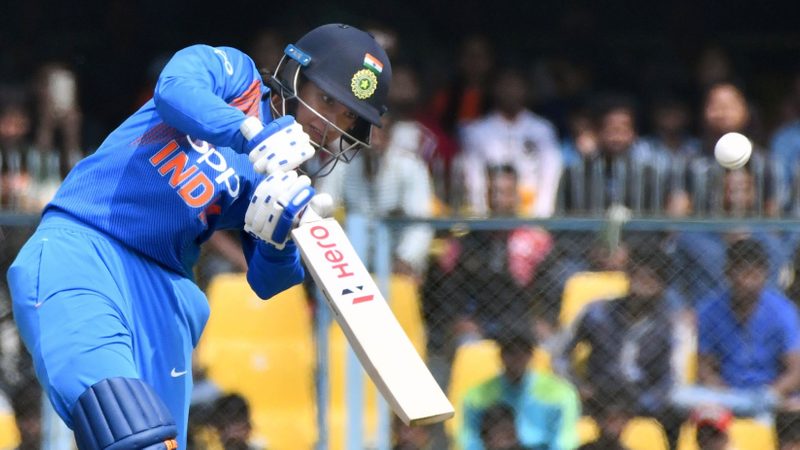
Think Australia Women and you go through a series of emotions that is likely to range from their four World titles in T20s to their six titles in ODI World Cups to Ellyse Perry- arguably the greatest women's cricketer the world has seen. The Meg Lanning-led outfit is perhaps the most dominant team the women's game has seen.
Yet, twice in the recently concluded tri-series involving India and England too, the Aussie women faltered - once against India and another against England, albeit in a Super Over. The bottom line is that Australia's women's team have a winning habit, one that has been near-impossible to break for most line-ups in the game.
As India's much-touted women's side head into Australia in the opening game of ICC Women's T20 World Cup 2020, their biggest worry would be breaking this winning habit that the Aussies possess. Their woes are compounded because this World Cup happens in their backyard, a place where the Aussies are domineering and are backed by a vehemently indifferent crowd.
Luckily, India have seen the Aussie wrath thrice in the recent tri-series. In the first game at Canberra, India barely resisted and Ellyse Perry made lightwork of them by single-handedly helping the Aussies to a win. In the finals, Australia strangled India with spin as Jess Jonassen picked five for 12 to help the hosts to a 11-run win.
The difference between the first and the second and third meetings between these sides in the tri-series was the manner in which India decoded the way to push Aussies into a corner. That is aassive takeaway ahead of the tournament opener.
If it was Shafali Verma's counterattack at the top in the second game - which India won - it was Smriti Mandhana with a brilliant onslaught in the finals, a 37-ball 66 studded with 12 fours that stunned the Aussies. Shafali's 28-ball 49 was as good in the second game at Melbourne that India won.
India’s chances
The key to breaking the Aussie women with the bat is to take them on and India seem to have the right openers to do this in Mandhana and Shafali. There exists the risk of losing one or both of them early on as a result of the early onslaught. But that's one India will have to carry if they are to challenge the greatest women's team ever.
With the ball, India will want their spinners choking the Aussie batters in the middle overs. Radha Yadav had a rather ordinary tri-series, but Deepti Sharma and Rajeshwari Gayakwad had brilliant outings averaging 19.71 and 12.6 respectively. Gayakwad, in fact, topped the wickets chart with 10 wickets.
The pace attack is obviously a lot less superior to that of the Aussies who have Megan Schutt, Elysse Perry and Annabel Sutherland. India will be relieved that Aussies are deprived of the services of Tayla Vlaemnick, their quickest bowler, who was ruled out of the tournament with a stress fracture on her foot.
India's pace attack of Shikha Pandey and Arundhati Reddy do not pack as much of a punch. What they will need to do is contain the big-hitting Aussie openers, Alyssa Healy and Beth Mooney. Healy has the best strike rate (min 300 runs) in Women's T20Is since 2018 - a whopping 152.93. Mooney has a rate of 123.55 but is equally consistent. The likes of Rachael Haynes and Ashleigh Gardner also strike at over a rate of 130. Skipper Meg Lanning averages 50-plus in the format since 2018 and strikes at 120-plus.
Stopping these big-hitting Aussies will be India's biggest headache. If they do manage that in the tournament opener, we might just be starting to think of an era after the Aussies of Meg Lanning.
Squads
Australia Women: Meg Lanning (C), Rachael Haynes, Ashleigh Gardner, Delissa Kimmince, Ellyse Perry, Erin Burns, Annabel Sutherland, Nicola Carey, Alyssa Healy, Beth Mooney, Jess Jonassen, Sophie Molineux, Megan Schutt, Molly Strano, Georgia Wareham
India Women: Smriti Mandhana, Shafali Verma, Jemimah Rodrigues, Veda Krishnamurthy, Richa Ghosh, Harmanpreet Kaur (C), Harleen Deol, Deepti Sharma, Shikha Pandey, Pooja Vastrakar, Taniya Bhatia, Poonam Yadav, Radha Yadav, Arundhati Reddy, Rajeshwari Gayakwad
Feature image courtesy: AFP/ Biju Boro






Leave a Reply